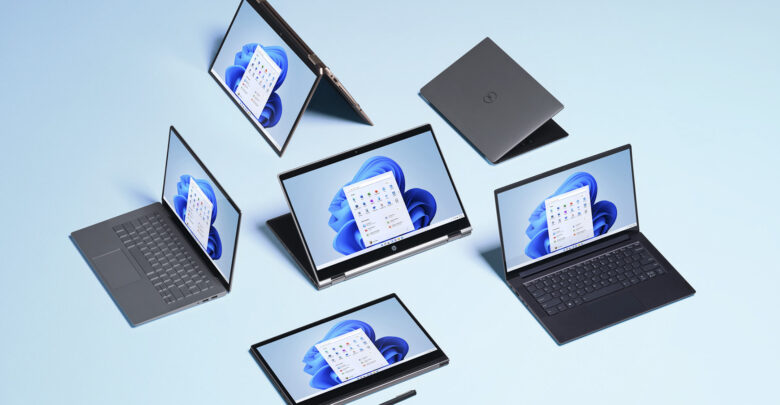

WASHINGTON — U.S. tech company Microsoft introduced a new dynamic refresh rate feature in the latest edition of its Windows 11 laptops to increase the battery life.
“Dynamic refresh rate is a new feature that can be found in Windows Insider builds (Dev channel) on supported devices,” Ana Marta, a program manager at Microsoft, said in the statement.
“As the name suggests, dynamic refresh rate lets your device set the refresh rate dynamically. This means that Windows 11 will seamlessly switch between a lower refresh rate and a higher refresh rate based on what you’re doing on your PC. This helps to balance performance and power consumption,” Marta said.
For the past couple of years, smartphones have come with a software-enabled dynamic refresh rate that allows them to dynamically change from a lower refresh rate to a higher refresh rate. This also acts as a battery-saving measure.
Laptops and personal computers have also had a high refresh rate display for quite some time.
The integration will let Windows 11 dial-up or dial down the display’s refresh rate based on use frequency to save power. If users have a monitor that supports high refresh rates of at least 120Hz and a Graphics processing unit with a variable refresh rate (VRR) tech like AMD Freesync and/ or NVIDIA GSync, they can turn on the setting in Windows 11.
This is dependent on whether the user’s display supports a higher refresh rate since it will not be able to make a 60Hz display a 120Hz one without technological assistance.
Once turned on, the dynamic refresh rate will actively and automatically swap between a 60Hz refresh rate and the higher 120Hz refresh rate depending on the task that the app lets users do.
There is a clear distinction between Microsoft’s dynamic refresh rate and its variable refresh rate for the app, even though they work similarly.
While variable refresh rate refers to the general ability for displays to adjust refresh rate on the fly, dynamic refresh rate is a Windows-specific feature that informs variable refresh rate-capable displays.
Variable refresh rate relies on users’ display hardware to switch refresh rates, while dynamic refresh rate is a software implementation that automatically controls when to switch refresh rates.
Last week, Microsoft made Windows 11 official, bringing with it a higher standard of security, a modernized User Interface, Start Menu, and Microsoft Store. This includes several performance improvements, touch optimizations, and gamer-specific features.
(With inputs from ANI)
(Edited by Abinaya Vijayaraghavan and Praveen Pramod Tewari)
The post Microsoft Set To Launch Dynamic Refresh Rate For Windows 11 Laptops appeared first on Zenger News.




